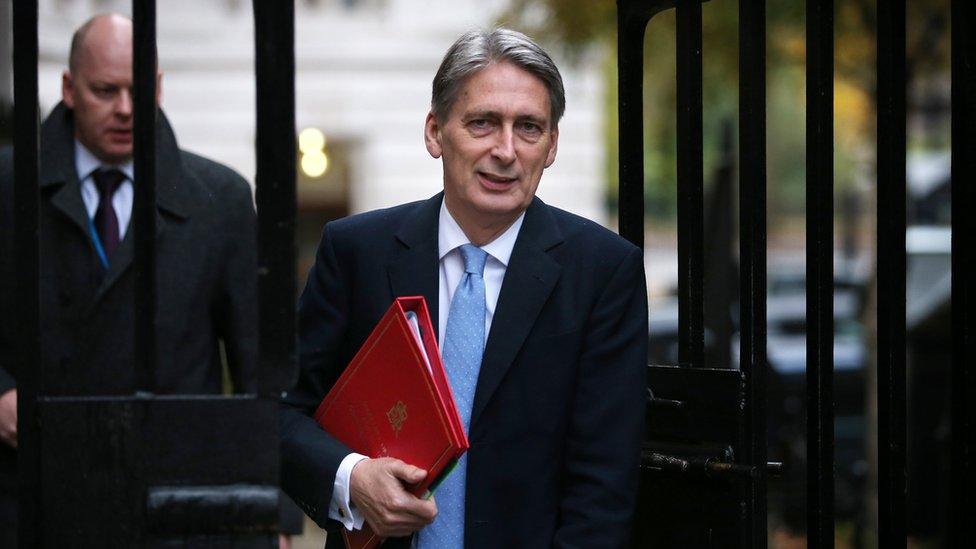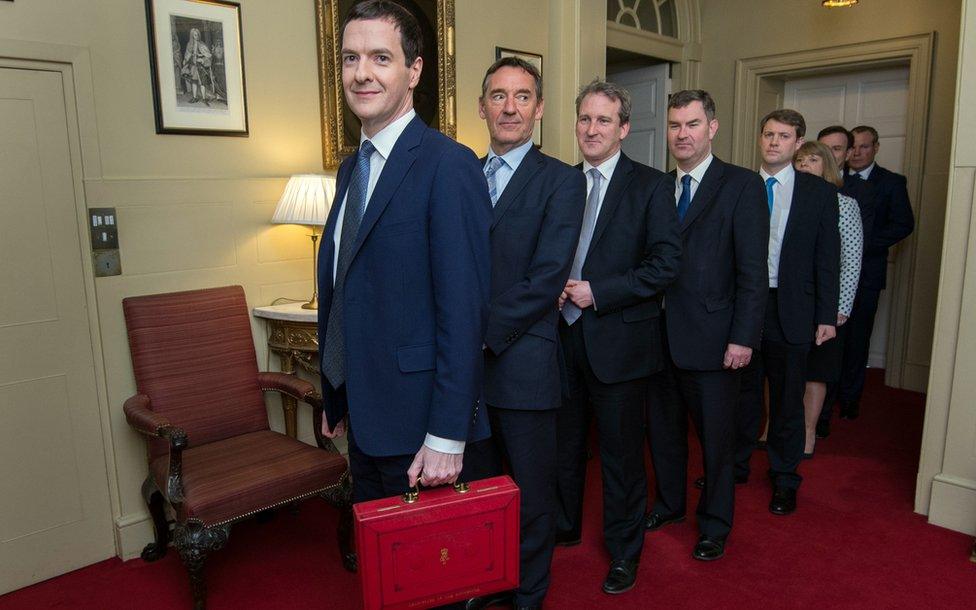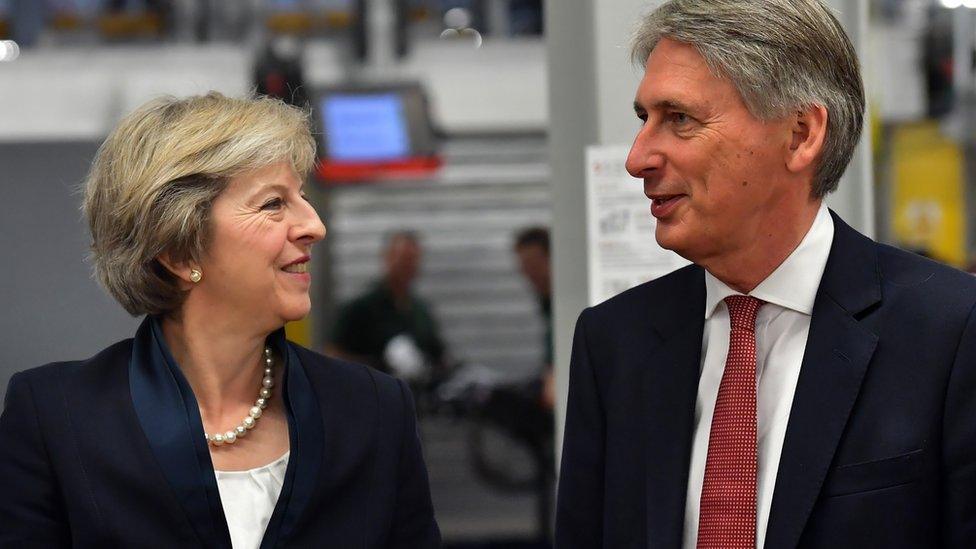Chancellor Philip Hammond 'still aspires for surplus'
- Published

Chancellor Philip Hammond will deliver the Autumn Statement on Wednesday at 12:30 GMT
Philip Hammond is expected say in his Autumn Statement he will still aim to achieve a budget surplus, despite abandoning a formal target by George Osborne to do so by 2020.
The chancellor's friend, MP Stephen Hammond, said Mr Hammond planned to set out an "intellectual framework" to bring the economy back to surplus.
But this would not be achieved until the economy has been stabilised after the uncertainty of the Brexit vote.
The Autumn Statement is on Wednesday.
Stephen Hammond said the chancellor would use his more flexible approach to allow for some extra spending on infrastructure.
But this will be targeted to ensure it produces a return.
Stephen Hammond added that he expected the chancellor to deliver a "steady-as-she-goes" Autumn Statement with no rabbits out of the hat in the style of his predecessor and Gordon Brown.

George Osborne and his Treasury team just before the March 2016 Budget
The chancellor wants the Autumn Statement to return to its original purpose as the lower profile of the two "fiscal events" of the year with major tax changes left to the budget in the spring.
The Treasury prompted speculation over the summer that it would adopt a looser fiscal policy - covering tax and spending - when the chancellor formally endorsed one of Theresa May's main pledges in the brief Conservative leadership contest.
This was to abandon George Osborne's target of achieving an overall budget surplus by the time of the next election in 2020. This would mean that public spending would no longer outstrip incoming revenue.
In his BBC Newsnight interview, Stephen Hammond said the chancellor will make clear in his Autumn Statement that he is still committed to achieving fiscal discipline and to achieving a surplus. But he will avoid setting a specific target date.
The former transport minister, who has known his namesake for 25 years but is unrelated to the chancellor, told Newsnight: "I think the Autumn Statement will see him reacting to the events, suggesting that some of the tight targets set out by George which looked feasible at the time, to be fair, now must be more uncertain because of the progress of the economy.
"But intellectually the framework remains the same - that we intend to achieve a fiscal surplus within the life of the next parliament."
Stephen Hammond: "I think this will be low key Autumn Statement"
Stephen Hammond said that the chancellor believes it is right to adopt a more flexible approach to give the Treasury and the Office for Budget Responsibility time to assess the extent of the impact of the economy EU referendum.
He said: "We live in very uncertain economic times. The fact that two or three months of relatively good economic news has come through does not mean by any means this economy is going have an easy ride after Brexit.
"So I think his statement about looking at the surplus targets and softening slightly them reflects that there is still quite a lot of uncertainty about the progress of the economy.
"But underlying that you will see Philip put in place fiscal disciplines that do ensure the economy comes back to surplus."
The chancellor is also expected to make clear next week that he sanctions a mild loosening of the purse strings to allow for infrastructure spending which could include so-called infrastructure bonds. But this will be within a strict fiscal framework.

It is expected that measures to help the "Just About Managing" will come in the Budget
Stephen Hammond said: "Anyone who thinks Philip Hammond is going to be Keynes has probably misunderstood his economic philosophy.
"But what it will be is accepting that there are things the government can and should do to ensure the economy continues to prosper in difficult times.
"Some of that is slowing down a little bit on fiscal discipline. But it means ensuring that the progress to budget surplus is still there.
"Some of it is ensuring that the projects you spend are there and can generate jobs but there is value for money and its proven business case."
The Autumn Statement will mark a departure from the approach taken by George Osborne in another key area - the chancellor will adopt a steady-as-she-goes approach.
There may be some modest measures, possibly a freeze in fuel duty and measures to encourage saving, aimed at the key group of voters identified by Downing Street - the so-called Just About Managing people (JAMs). But major tax changes will have to wait until the Budget.
Nicholas Watt is political editor for BBC Newsnight - more on this story on the programme at 22:30 GMT on BBC Two